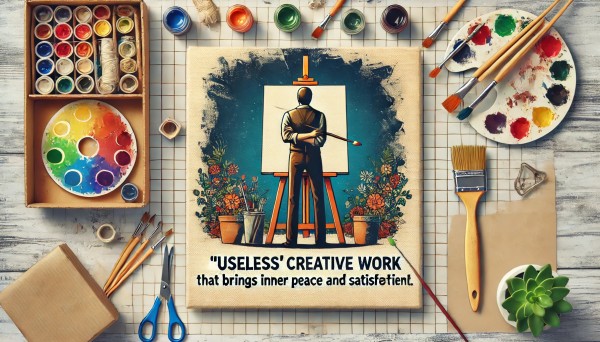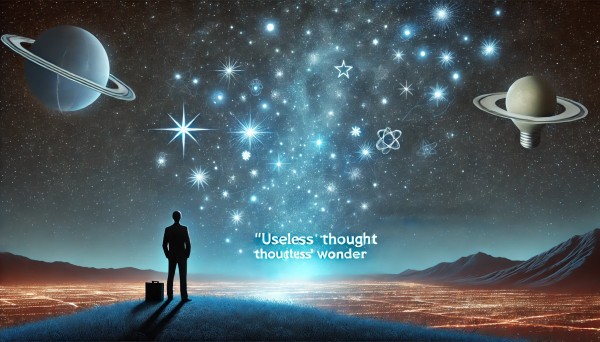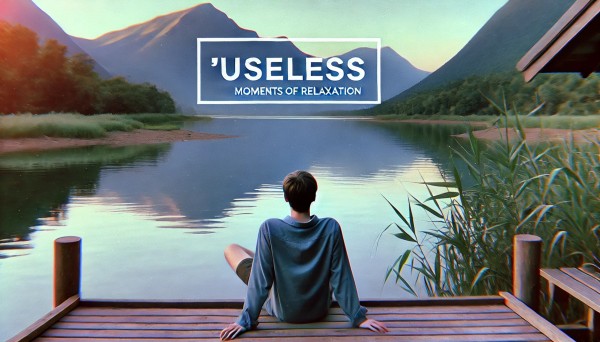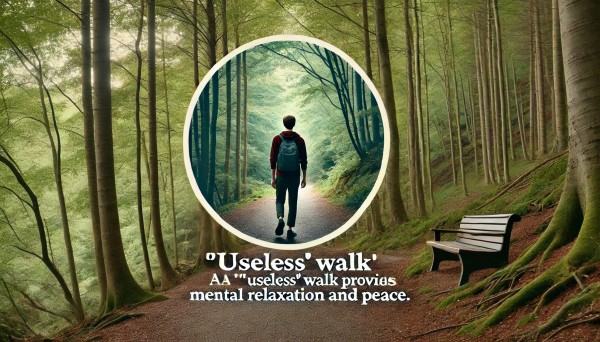The Great Use of Uselessness: Another Kind of Wisdom in Life
YouTube上有很多教育频道,如 Crash Course 和 The School of Life #生活技巧# #学习技巧# #在线学习资源推荐#
"Zhuangzi" once said: "Everyone knows the useful uses, but no one knows the useless uses." This sentence seems simple, but contains profound philosophy. In our daily lives, we are often accustomed to measuring the value of things by "useful" and "useless", pursue useful things, and ignore seemingly useless things. However, the "useless use" emphasized by Zhuangzi reminds us that many seemingly useless things actually contain deep wisdom and meaning. They not only enrich our inner world, but also bring unexpected help and inspiration at some point.
In modern society, the concept of utilitarianism is prevalent. Whether at work or in personal life, many people are accustomed to using "useful" as the standard for measuring everything. What is useful? Often, we think that things that bring direct benefits or practical value are useful. For example, jobs that can bring financial benefits, learn personal skills, or activities that can increase connections in social networks are considered useful. People hope to obtain material rewards, improve the quality of life, and gain social recognition through these "useful" behaviors and choices.
In contrast, anything that cannot directly bring these actual benefits is often considered "useless". For example, artistic creation, philosophical thinking, and even leisurely walks, meditation and other activities are often considered useless. Because they do not seem to bring obvious improvements in economic benefits or social status. However, this concept of judging the value of things by only "useful" and "useless" actually ignores the deeper needs and meanings in human life.

Zhuangzi's "useless use" was proposed in this context. He reminds us not to be obscured by superficial utilitarianism. Things that seem useless often have longer-term value and deeper meaning. Zhuangzi used a vivid metaphor to explain this truth: an ancient tree was preserved because its wood could not be used for construction, and the trees were too big and not suitable for cutting down. On the surface, this tree is useless, but it is its "uselessness" that prevents it from being cut down and can survive for a hundred years, or even a thousand years. This is a typical manifestation of "useless use".
Similar truths can be seen everywhere in life. For example, the existence of artistic activities such as music, painting, literature, etc. is not to directly obtain material benefits, but to meet people's spiritual needs. Although they do not directly promote social progress and bring economic benefits like science and technology, they enrich people's inner world and bring beauty enjoyment. In the tense rhythm of life, a beautiful piece of music and an exquisite painting can allow us to briefly forget the troubles of reality and feel the tranquility and satisfaction in our hearts. This kind of experience seems useless, but in fact it has an irreplaceable healing effect on the human mind.
In addition, "uselessness" is also a kind of freedom. Things related to "usefulness" are often bound by utilitarianism because we pursue the actual effects they can bring. And those seemingly "useless" things, precisely because they have no obvious utilitarian purpose, provide us with a sense of freedom to break free from constraints. We can find pure pleasure in useless things without worrying about whether they can bring economic benefits or social status. For example, chatting with friends in their spare time and walking alone in nature are precious "useless times" in our lives. These moments temporarily leave us free from daily trivial matters and responsibilities and return to a pure and free state.

More importantly, many great creations and inventions were born from "uselessness". The inspiration and innovation of many geniuses does not come from the pursuit of direct utilitarianism, but from free thinking and exploration of unknown fields. In history, many seemingly useless research and inventions have eventually become important forces in promoting social progress. For example, the research of ancient astronomers may initially be considered useless or even meaningless, but it is these seemingly useless thinking that ultimately promoted the development of science and laid the foundation for our scientific and technological progress today. It can be seen from this that "uselessness" can not only bring spiritual pleasure and freedom, but also become a source of creativity and inspire infinite possibilities.
In modern life, we are often overwhelmed by various affairs and responsibilities, and the pursuit of "useful" things has become a norm. However, in the busy daily life, we need to learn to appreciate those seemingly useless moments. We can take some time every day to do things that have no utilitarian purpose, such as meditation, reading a collection of poems, and quietly watching a sunset. Although these moments may seem useless, they can calm our hearts and inject new power into our spiritual world.
At the same time, we also need to learn to find a balance between "useful" and "useless". In the process of pursuing career success and accumulating wealth, you might as well leave a "useless place" for yourself, where we can explore, think and relax freely. Whether it is cultivating a hobby or spending time with your family and enjoying the useless beauty in life, we can find a sense of belonging in the tense rhythm of life.

In addition, we can inspire creativity from “useless” thinking. Many innovative ideas often appear when we are most relaxed. When we temporarily get rid of daily affairs and responsibilities and give our brains enough space to relax and think, many inspirations will naturally appear in this "useless" state. Therefore, in the busy work and life, you might as well make sure to leave time to daydream and take a walk, and give yourself an opportunity to get along with "uselessness", and you may have unexpected gains.
Zhuangzi's "useless use" reveals another kind of wisdom in life. It reminds us not to pursue utilitarian value only, but also to learn to appreciate those seemingly useless things and moments. These “useless” can not only bring peace and satisfaction to our hearts, but also bring profound revelation to our lives at some point. Whether in the stimulation of creativity or the happiness of personal life, "uselessness" plays an important role.
In this fast-paced and high-pressure modern society, we should learn to find a balance between "useful" and "useless". Perhaps, what our lives need is not just chasing success and achievements, but also those seemingly useless time and space, allowing us to find inner peace and feel the beauty of life. By re-understanding "useless use", we can discover more possibilities in our ordinary life and find our own life wisdom.
Life is short, and many things may not bring immediate returns or significant results, but it is these useless moments that enrich our lives and make life more meaningful. Let us cherish every "useless" moment and discover their beauty and value.

图片源于网络
网址:The Great Use of Uselessness: Another Kind of Wisdom in Life https://www.yuejiaxmz.com/news/view/1206531
相关内容
The Power of a Calm Mind: Life Wisdom in Zen BuddhismThe Power of Loneliness
The life in the future未来的生活英语作文(精选32篇)
How do you like life on Mars?= What do you think of life on Mars?——青夏教育精英家教网——
The Practice of Everyday Life
The combination of fashion and environmental protection has become the mainstream trend of fashion design in 2023
Buddhist Family: Learn the art of getting along with couples to make marriage happy, harmonious and fulfilling
The life in the future未来的生活英语作文5篇
The taste bud memory of Guangdong festival: inheritance of food and customs
关于网络的英语作文The Internet in our life(精选38篇)

